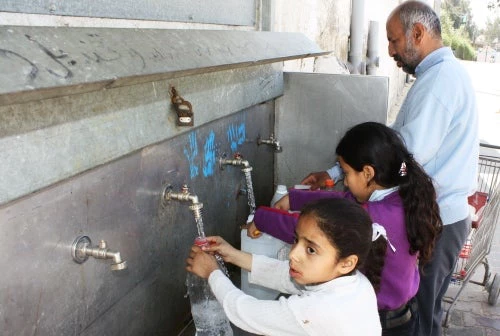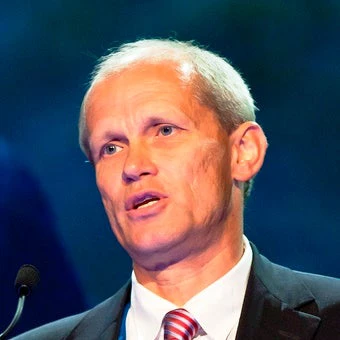 History repeats, history rhymes and sometimes history regresses. Wandering through cities and fields in the Middle East and North Africa a thousand years ago, you would have been struck by the security of water supplies, the irrigation enabling highly productive farms and governance structure in place to allocate and value water in a sustainable way, supporting a flourishing civilization.
History repeats, history rhymes and sometimes history regresses. Wandering through cities and fields in the Middle East and North Africa a thousand years ago, you would have been struck by the security of water supplies, the irrigation enabling highly productive farms and governance structure in place to allocate and value water in a sustainable way, supporting a flourishing civilization.
Today, the situation is very different. Leaking water pipes mean that some cities lose up to 40 per cent of their water before it even reaches users, extreme weather events damage farmers’ crops and, in some parts of the region, urban water systems are targets of armed conflicts.
So what led to this dramatic shift? As always, there are no easy answers but rapid changes in the economic, social, and environmental characteristics of the Middle East and North Africa have exacerbated existing water challenges. Rapid population growth in urban centers, economic development, increasing and wasteful water consumption, undervalued water and inadequate governance are just some of the reasons. Climate change is causing more severe and frequent extreme weather events. All the while political and social turmoil compound the age-old constraints of water scarcity.
The World Bank’s “ Beyond Scarcity: Water Security in the Middle East and North Africa” report argues that this rapidly evolving context makes the challenges of water in the Middle East and North Africa much broader than just coping with water scarcity. The report covers three areas. Firstly, addressing questions of whether the region’s water resources are being managed in a sustainable and strategic way. Secondly, examining the extent to which water services are being delivered reliably and affordably. And finally, unpacking how the transboundary nature of water further complicates resource allocation.
It is clear that innovation and collective thinking are needed to address this complex and evolving issue. This year’s World Water Week, held in Stockholm from 27 August – 1 September, will bring together experts from across the region and around the world to foster ideas and solutions for sound water management in the Middle East and North Africa. Notably, the distinguished Malin Falkenmark Symposium will convene once again this year to explore the realities of addressing SDG 2 – to end hunger, achieve food security and improved nutrition, and promote sustainable agriculture - through rainwater harvesting. The Symposium is a follow up to last year’s Call for an African Water Revolution - endorsed by SIWI, Stockholm Environment Institute (SEI) and Stockholm Resilience Centre, among others - calling upon actors to activate funding and policy tools to support the science of an integrated blue-green water approach to irrigation.
The Week will also feature a MENA Focus stream. This includes a session convened by both SIWI and the World Bank Group focused on water security and integrity challenges. Other issues tackled by the MENA Focus stream include governance, climate change and the role of investment.
The same combination of innovation, technology and governance that supported the Islamic Golden Age is now needed to harness water’s potential to sustain the well-being of people and ecosystems and develop economies and societies in the region. The opportunity is within reach and now is the time to come together and act. World Water Week provides a place to meet, discuss, innovate and explore how to do just that. I invite you to Stockholm to share your ideas and partake in these timely discussions.


Join the Conversation